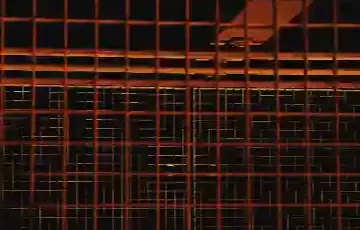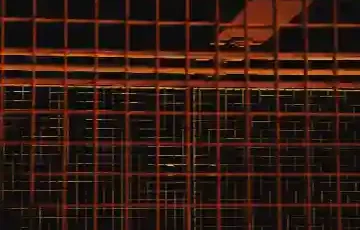A dispute with your contractor arises when the contracted party fails to perform, performs late, or improperly executes agreed work according to the construction contract under Dutch law. You are entitled to remediation, compensation, or contract termination through formal notice, with action expected from the contractor within two weeks. Our Dutch Construction law attorney explains the most important aspects.
Legal disputes between principals and contractors constitute a frequent issue within Dutch construction law. According to Article 7:750 of the Dutch Civil Code (BW), a construction contract exists when one party undertakes to create a work of material nature outside employment against payment. Breach of these contractual obligations justifies remedies including formal notice, termination, and damages. Practice figures demonstrate that approximately 65% of all construction disputes stem from insufficient written agreements. An entrepreneur from Rotterdam discovered his construction contract lacked crucial provisions regarding delivery deadlines, making three months of delay legally difficult to challenge.
What rights do you have under Dutch law when your contractor breaches contract?
Upon contractor breach under Dutch law, you are entitled to performance, defect remediation, compensation, or contract termination. These rights derive from Article 6:74 BW and require you to first place the counterparty in default with reasonable time for correction.
Breach within construction contracts manifests in various ways. The contractor fails to execute work, delivers shoddy results, exceeds deadlines, or causes damage to your property. Dutch case law requires defects to be substantial to justify termination. A single crack in a wall typically does not suffice, whereas structural defects definitely provide grounds for termination.
Your duty to investigate plays a central role here. Immediately after delivery, you must inspect the work thoroughly. Report discovered defects promptly in writing to the contractor. Wait too long with protest, and your claim for remediation may lapse. Legally, a period of several days to maximum two weeks qualifies as reasonable for this investigation, depending on work complexity.
Besides visible defects, hidden defects exist. You discover these only after delivery, despite thorough investigation. For hidden defects, the contractor remains liable provided they are attributable to him. Consider an incorrect foundation under an extension that causes cracks only months later. For this applies a liability period of five years from discovery according to the general limitation regulation under Netherlands law.
Practice example: An entrepreneur in Amsterdam commissioned commercial property renovation for €125,000. Three months after delivery, moisture stains appeared due to defective roof insulation. Because the insulation was not visible during delivery, this qualified as hidden defect. The contractor had to remediate free of charge, including compensation of €8,500 for damaged inventory.
How do you legally establish contractor liability according to Dutch legislation?
Liability establishment in the Netherlands begins with written formal notice precisely describing the defect, demanding remediation within a concrete deadline (typically 14 days), and announcing consequences if action fails to materialize. This letter is mandatory before you undertake further legal steps.
A legally correct formal notice contains specific elements. First, you describe the defect or shortcoming precisely with date, location, and nature of the problem. Subsequently, you formulate a clear demand: remediation, replacement, or compensation. Additionally, you set a reasonable remediation period, whereby 14 days is customary for repairs. Moreover, you announce consequences: termination, own remediation at contractor’s expense, or judicial proceedings.
Always send this formal notice by registered mail or email with read confirmation. Preserve all correspondence, photographs, and defect documentation. These evidentiary materials are crucial during potential proceedings before the disputes committee or court.
The legal basis for this is found in Article 6:82 BW. Without formal notice, you cannot claim compensation for delay or remediation costs. Furthermore, a professional warning often prevents further escalation, because contractors take legal steps seriously. Approximately 45% of all liability establishments result in amicable settlement without judicial intervention.
Does the contractor fail to respond within the stipulated deadline? Then you may proceed to contract termination. Send a registered letter in which you terminate the construction contract due to breach. Reference your earlier formal notice and the absence of remediation. From that moment, your payment obligation ends and you may engage another party for remediation or completion.
Payments you already made for non-executed or poorly executed work, you reclaim in writing. Here applies proportional calculation: at 60% work completion, you pay maximum 60% of the contract sum. Poorly executed work reduces this percentage further.
Do you want certainty about your legal position in a contractor dispute? Specialized construction law attorneys analyze your contract documents and advise on optimal strategy for formal notice and damage claims.
What must you know about additional work and cost overruns under Dutch law?
Additional work is extra work beyond the original assignment for which the contractor may only demand payment if he warned in advance in writing about the extra costs. Without this warning, the principal may refuse payment, unless the necessity was self-evident.
Legally, Article 7:753 BW defines additional work as additions or modifications desired by the principal that involve extra costs. The contractor must warn timely about price consequences before executing the additional work. This warning obligation protects principals against unexpected cost items. If the contractor neglects this duty, he loses his right to additional payment.
An exception applies when the principal could reasonably have understood the necessity of additional work himself. This occurs more with additions than modifications. If you request, for example, three extra outlets in a new space, additional work is evident. With structural adjustments resulting from technical necessity, the burden of proof weighs heavier on the contractor.
Reduced work forms the counterpart: work originally agreed but canceled by mutual consent. For this, you are entitled to discount on the contract sum. Calculation of reduced work occurs proportionally, whereby the contractor deducts his savings from the original amount. Did the contractor already purchase materials for the canceled work? Then you only pay actually incurred costs.
Provisional sums form a separate category. These are amounts included in advance for work whose exact scope remains unknown, such as unforeseen foundation work. Provisional sums require subsequent specification: the contractor demonstrates with invoices and photographs which work he actually performed. Without proper substantiation, you need not pay provisional sums.
Practice example: A hospitality entrepreneur commissioned restaurant renovation with contract sum of €85,000. During work, he requested addition of an extra toilet facility. The contractor immediately sent written price quotation of €12,500 that the principal accepted. At delivery, however, the contractor invoiced €16,700. Because the cost overrun of €4,200 was not announced in advance, the court rejected these additional costs.
How do you handle damage during renovation in the Netherlands?
The contractor bears liability for damage occurring to your property during work in the Netherlands, unless damage results from your own actions or decisions. Demand immediate free remediation and document damage thoroughly with photographs and written recording.
Liability for construction damage is governed by Article 6:162 BW concerning wrongful act. During work execution, the contractor is responsible for careful conduct. Does personnel drop heavy equipment on your laminate floor causing damage? Then the contractor must finance remediation. This also applies to damage by subcontractors or hired specialists, because the main contractor bears ultimate responsibility.
Does damage occur through defective materials the contractor supplied, while he knew or should have known beforehand they were inadequate? Then liability also applies. A professional contractor has a warning obligation when doubting material quality. However, if you purchased incorrect materials yourself against his advice, the damage burden rests with you.
Damage reporting procedure requires speed and precision. Discover damage during renovation? Report this immediately orally to the contractor and confirm within 24 hours in writing by email or letter. Create extensive photographic documentation from multiple angles, preferably with date stamp. Note witnesses who saw damage infliction. These evidentiary means are essential if the contractor denies liability.
Does the contractor refuse free remediation? Then send a registered letter demanding remediation within 14 days. State therein that upon absence you will arrange remediation yourself and recover costs. Only engage another party after the remediation deadline expires, otherwise you potentially lose recovery possibilities.
Some construction contracts contain liability limitations in general terms. However, such clauses are not unlimitedly valid. Compensation limitations for intent or gross negligence are void according to Article 6:248 BW. Even with deliberate incorrect material application, a contractor cannot hide behind contractual limitations. Approximately 30% of all liability clauses in construction contracts prove unreasonably onerous for the principal upon legal review.
What steps do you take when the contractor fails to appear in the Netherlands?
When your contractor fails to appear in the Netherlands, you first make telephone contact for explanation, followed by written confirmation of new appointments. If the contractor again fails to appear, you send formal notice with definitive deadline of one week for work resumption.
Work standstill during renovations causes not only frustration but also financial damage. Rental losses, extra storage costs, or extension of temporary housing accumulate. Dutch construction contracts typically contain delivery dates but often lack concrete progress obligations. Therefore, legal enforcement remains difficult until the final delivery deadline expires.
Preventively, you can include concrete progress moments in your contract with interim milestones. For example: foundation within four weeks, roof structure within ten weeks, finishing within sixteen weeks. Such concrete agreements strengthen your legal position during standstill.
Does the contractor structurally fail to appear and provide unclear explanations? This may indicate threatening financial problems or bankruptcy. Exercise restraint with further payments until work resumes. Never deposit money in advance for materials you do not physically see arriving at the construction site. Approximately 15% of all construction bankruptcies announce themselves through sudden communication silence.
Does the contractor exceed the contractual delivery date? Then you are entitled to compensation for delay damage. Many contracts contain penalty clauses with daily amounts for late delivery, often between €100 and €500 per day with maximum of 10% of the contract sum. If a penalty clause is absent, you claim actually suffered damage such as extra rental costs, storage costs, or lost business income. Document these costs carefully with rental contracts, invoices, and accounting overviews.
Practice example: A retailer commissioned shop premises renovation with agreed delivery on September 1 for peak season. The contractor delivered only on November 7, causing the entrepreneur to miss two crucial months of revenue. The contractual penalty amounted to €250 per day with maximum 10% of contract sum of €145,000. The court awarded €14,500 plus €23,000 lost profit, totaling €37,500 compensation.
Want certainty about your legal position in construction disputes? Specialized construction law attorneys analyze your situation and advise on optimal strategy for formal notice and liability enforcement.
What are your rights under Dutch law when contractor bankruptcy occurs?
Upon contractor bankruptcy in the Netherlands, you immediately cease all payments and contact the trustee via the Central Insolvency Register. Ask the trustee in writing whether he continues the contract; upon refusal, you terminate the contract and engage another contractor.
Contractor bankruptcy constitutes a drastic event with far-reaching consequences. According to the Dutch Bankruptcy Act (Fw), a trustee acts who assumes all powers of the bankrupt party. This trustee decides within short time whether he continues or terminates ongoing contracts. For principals, this means uncertainty about project completion.
Your first action upon bankruptcy notice is payment cessation. Money you transfer to the bankrupt contractor’s bank account disappears into the estate and benefits all creditors. For your specific project, you virtually never see this money returned, since you stand as concurrent creditor behind preferential creditors such as tax authorities and employees. Statistics show private principals average only 8% recovery of their claim in contractor bankruptcies.
You find the trustee via the Central Insolvency Register or by contacting the District Court that declared bankruptcy. Send the trustee within one week a registered letter containing your contract details, work status, payments already made, and your request for continuation. The trustee typically responds within two weeks.
Does the trustee refuse continuation? Then you may terminate the contract and engage replacement contractor. Note: conclude no new agreement before receiving written trustee confirmation about termination. Otherwise you risk double payment claims. File with the trustee a written claim for suffered damage: extra costs through more expensive replacement contractor, delay damage, or remediation costs for poor work. You register this claim with the trustee, although realistic chance of full payment is minimal.
Construction guarantees such as those from BouwGarant offer substantial bankruptcy protection. These guarantee schemes compensate extra costs up to certain maximum, often 75% of remaining contract sum with ceiling of €100,000. Always verify before contract conclusion whether your contractor is affiliated with recognized guarantee scheme. Approximately 40% of all private principals conclude no guarantee whatsoever, leaving them completely unprotected during bankruptcy.
Contact our law firm for legal advice regarding your rights during contractor bankruptcy and optimal protection of your financial interests during settlement.
How does delivery proceed and what do you do with disputes in the Netherlands?
Delivery is the formal moment when contractor and principal jointly establish work completion according to the construction contract in the Netherlands. From delivery, contractor liability for visible defects ends, except for hidden defects and pledged guarantees.
The delivery procedure involves legal formalities determining your legal position. During delivery, you inspect work thoroughly, preferably together with the contractor. Establish written delivery report documenting completed work and any defects or remaining points requiring remediation. Both parties sign this document, formalizing delivery.
Your investigation duty during delivery is extensive. You must identify all visible defects and mention them in the delivery document. If you accept delivery without reservation, you lose the right to later complain about aspects you could have discovered through careful investigation. Average delivery inspection lasts between one and three hours, depending on project scope.
Do you discover defects during delivery? Then refuse acceptance until remediation occurs. Document specifically which points are unsatisfactory: cracks in stucco work, incorrect placement of facilities, unfinished detailing, or quality defects. State per point what you expect: remediation, replacement, or price reduction. Set concrete deadline for remediation, for example two weeks.
Do you refuse delivery entirely? Then the contractor remains fully liable and you have no payment obligation yet for the final contract sum portion. Usually 10-20% of the total amount remains outstanding until after successful delivery. Use this final payment as leverage for proper remediation of established defects.
After formal delivery, risk shifts. From that moment, you as owner bear responsibility for the work, except for hidden defects. This exception is crucial: if problems arise months after delivery originating from faulty execution you could not see, the contractor remains liable. Examples include leakage through incorrectly applied roofing, cracks from inadequate foundation, or moisture problems from defective insulation.
When do you engage disputes committee or court under Dutch law?
Disputes committees offer swift, affordable dispute resolution for consumers with member contractors under Dutch law, with binding rulings up to €25,000. The subdistrict court handles higher amounts or non-consumer cases, whereby legal assistance is strongly recommended given procedural complexity.
Dutch legal infrastructure offers multiple dispute resolution routes for contractor conflicts. Choice depends on financial interest, your contract terms, and whether you act as consumer or business principal. Many contractors affiliate with recognized disputes committees such as the Disputes Committee for Renovations and New Construction or the Council of Arbitration for Construction.
Disputes committees offer substantial advantages: relatively low costs (often between €50 and €150 per party), swift processing (within three months), and simplified procedures without mandatory attorney. The ruling is binding and executable, meaning you can enforce it if necessary through bailiff. However, typically a financial limit of €25,000 applies; higher claims require court proceedings.
Verification whether your contractor is affiliated appears in general terms or via the relevant disputes committee website. Approximately 60% of all recognized contractors in the Netherlands maintain dispute resolution arrangements. If this affiliation is absent, you can only approach the court or propose arbitration, but the contractor must consent.
Subdistrict court proceedings are more formal and costly. For claims up to €25,000, the subdistrict court handles the case; above this amount, the district court civil section. Court fees vary from €127 to €680 depending on the claim. Additionally, you calculate attorney costs from €2,500 for simple cases to €15,000 or more for complex proceedings. Process costs are awarded to the losing party, but often not fully, so you always retain own costs.
Emergency proceedings at the subdistrict court, such as preliminary relief proceedings, offer solutions in urgent situations: threatening further damage, necessary emergency repairs, or blocking of necessary work. Preliminary relief results within several weeks in provisional judgment with immediate execution possibility. Since 2019, Amsterdam District Court maintains special construction judge for disputes between private parties and contractors, whereby an expert conducts on-site investigation and provides advice. This pilot shows approximately 55% of all cases reach settlement through this route without formal judgment.
Mediation forms an alternative: an independent mediator helps parties reach negotiated solution. This prevents lengthy proceedings and preserves possibilities for future business relations. Mediation costs average €2,000 to €5,000 total, shared by both parties. Approximately 70% of all construction mediations result in agreement.
For optimal legal advice when choosing the appropriate dispute resolution route and maximizing your chances of favorable outcome: consult specialized construction law attorneys who analyze your contract and determine procedural strategy.
What preventive measures prevent disputes with contractors in the Netherlands?
Prevention begins with written construction contract under Dutch law detailing work, materials, planning, payment, and dispute resolution. Verify contractor reliability beforehand via Trade Register, reviews, and proof of liability insurance.
A solid construction agreement forms your legal foundation. Essential contract elements include: precise description of work to be executed, specification of materials to be used with quality standards, concrete start and delivery date, detailed price structure with payment terms, regulations about additional and reduced work, liability for damage during execution, guarantee arrangements after delivery, and applicable dispute resolution.
General terms require attention. Many contractors apply standard terms containing substantial obligations or limitations. Read these thoroughly in advance or have them legally assessed. Unreasonably onerous provisions are voidable, especially in consumer relationships. Article 6:233 BW protects consumers against excessive clauses in general terms.
Reliability checks beforehand prevent problems. Verify via Trade Register whether the contractor is officially registered and active. Check online reviews on platforms like Trustpilot and Google. Request reference projects and contact previous principals. Verify whether the contractor maintains professional and business liability insurance. Request proof of this insurance before contracting.
Guarantee schemes such as BouwGarant or Woningborg offer extra security. These cost 1-3% of contract sum but cover bankruptcy risks and quality defects. Approximately 35% of private principals conclude such guarantees, while 85% retrospectively regret not having done so.
Documentation during the project is essential. Photograph all work phases. Preserve all correspondence, quotations, invoices, and modifications. Always confirm oral agreements in writing by email. Maintain project diary with executed work, present persons, and particulars. This documentation forms indispensable evidentiary material during disputes.
Structure interim payments linked to milestones. Never pay more than 10-30% in advance as down payment. Link further payments to concrete progress: 25% after foundation, 25% after roof structure, 25% after finishing, remaining 10-20% after delivery. Hereby you retain financial leverage for quality enforcement. Statistics show 80% of all payment conflicts arise with contractors demanding full advance payment.
Communication and expectation management prevent much frustration. Discuss progress regularly with the contractor. Report concerns or questions about execution immediately. Maintain realistic expectations about timelines and unforeseen complications inherent to construction projects. Flexibility combined with clear boundaries creates constructive cooperation.









